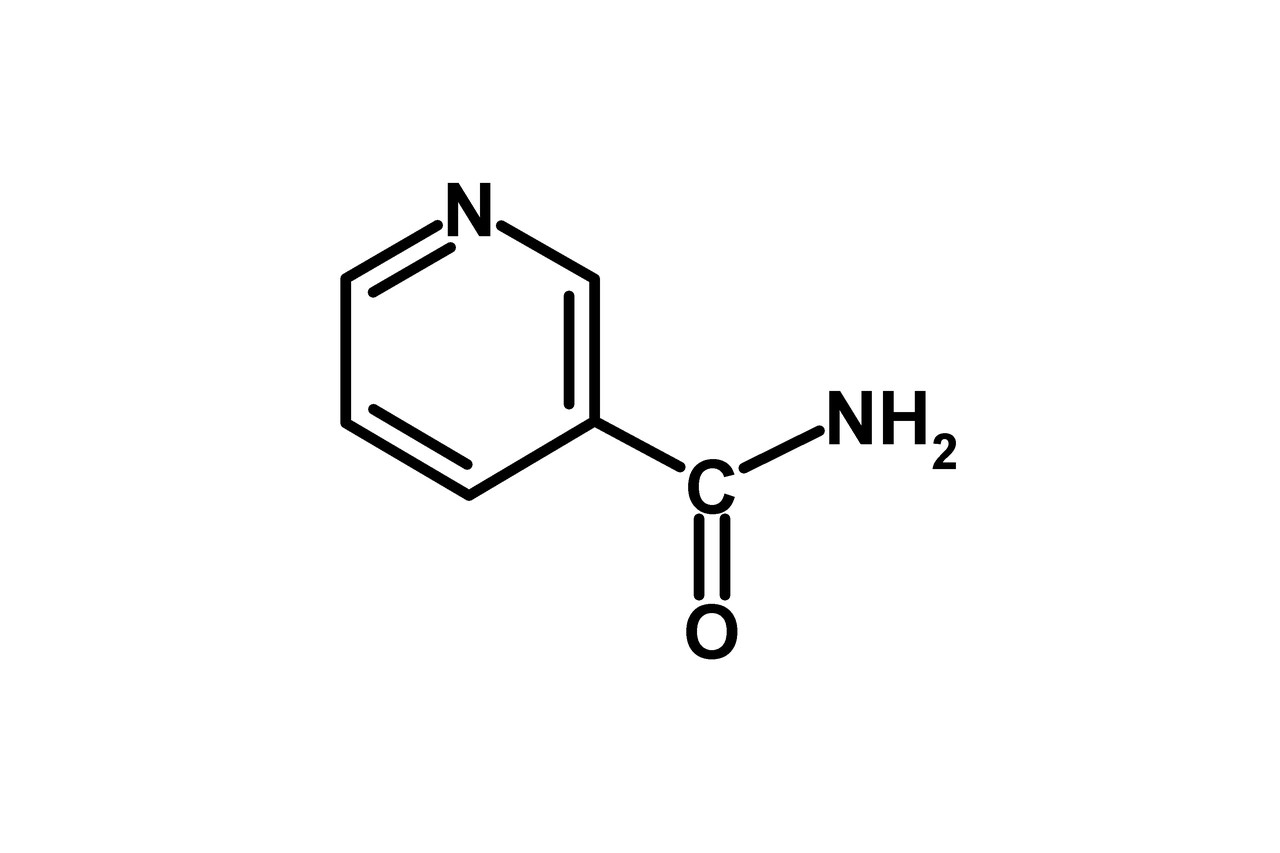Nicotinamide capsules typically contain the active ingredient nicotinamide, which is a form of vitamin B3 (also known as niacinamide). In addition to nicotinamide, other common ingredients found in nicotinamide capsules may include:
Fillers: These are inert substances added to the capsule to ensure proper dosing and to maintain the structural integrity of the capsule. Common fillers include starch, cellulose, or other similar substances.
Binders: Binders are used to hold the ingredients together in the capsule and ensure that they remain intact until ingestion. Examples of binders include gelatin, cellulose derivatives, or starch.
Lubricants: Lubricants are added to ease the manufacturing process and prevent the ingredients from sticking to the machinery during capsule formation. Common lubricants include magnesium stearate or stearic acid.
Coating: Some capsules may have a coating to make them easier to swallow and to mask any unpleasant taste or odor. Coating agents may include gelatin, cellulose derivatives, or other polymers.

Colorants: Colorants may be added to the capsule to distinguish different strengths or to enhance the appearance of the product. These colorants can be synthetic or derived from natural sources.
It’s important to note that the specific ingredients and their proportions can vary depending on the brand and formulation of the nicotinamide capsules. Always read the label and consult with a healthcare professional before taking any supplement.
The application of Nicotinamide Capsules
Nicotinamide, also known as niacinamide or nicotinic acid amide, is a form of vitamin B3. It plays several crucial roles in the body, particularly in cellular metabolism. Nicotinamide is available in supplement form, often in the form of capsules. Here are some common applications of nicotinamide capsules:
Skin Health: Nicotinamide is known for its beneficial effects on the skin. It has been used in various skincare products and supplements due to its ability to improve the appearance of aging skin, reduce fine lines and wrinkles, and improve skin elasticity. It can also help in managing skin conditions such as acne, rosacea, and hyperpigmentation.
Photoprotection: Nicotinamide has shown promise in protecting the skin against the harmful effects of ultraviolet (UV) radiation from the sun. It helps in repairing damaged DNA caused by UV exposure and may reduce the risk of skin cancers.
Hyperpigmentation: Nicotinamide has been studied for its ability to lighten dark spots and even out skin tone. It inhibits the transfer of pigment to skin cells, which can help in reducing hyperpigmentation caused by factors like sun exposure or hormonal changes.
Skin Barrier Function: Nicotinamide can enhance the skin’s barrier function by increasing the production of ceramides, fatty acids, and other lipids essential for maintaining skin hydration and preventing moisture loss. This can benefit individuals with dry or sensitive skin conditions.
Anti-inflammatory Effects: Nicotinamide has anti-inflammatory properties that can help in reducing redness, irritation, and inflammation in the skin. It may be beneficial for individuals with inflammatory skin conditions such as eczema or psoriasis.

Oral Supplementation for General Health: Nicotinamide is also taken orally as a supplement for general health and well-being. It plays a vital role in energy production, DNA repair, and various enzymatic reactions in the body. Some people take nicotinamide supplements to support overall metabolism and cellular function.
It’s important to note that while nicotinamide is generally considered safe for most people when taken in appropriate doses, it’s always a good idea to consult with a healthcare professional before starting any new supplement regimen, especially if you have any underlying health conditions or are taking medications. They can provide personalized recommendations based on your individual needs and health status.
